Climate and Energy Policy Research Lab (CEPRL)
Overview
Incubated at the Indian Institute of Technology Kanpur, the Climate and Energy Policy Research (CEPRL) Lab is an interdisciplinary research-based initiative to address the global climate crisis. It aims to bring together international research collaborators from diverse fields- academia, policy-making, research organizations, think-tanks, NGOs, and civil societies- to engage in fruitful network-building and knowledge exchange processes. The lab's ongoing projects involve air pollution, climate change policy networks, just energy transitions, and grassroots innovations. Our research uses data collected through surveys, ethnographic research, policy reports, and online media repositories and combines classical and computational sociological methods for data refinement and analysis.
CEPRL is currently working with the research teams from Australia, Brazil, Japan, and the United States. CEPRL's team has published in peer-reviewed journals, including the British Journal of Sociology and Current Sociology.
SUBSCRIBE CEPRL's Youtube Channel 
Members
LAB HEAD
Pradip Swarnakar
POST-DOCTORAL STUDENT
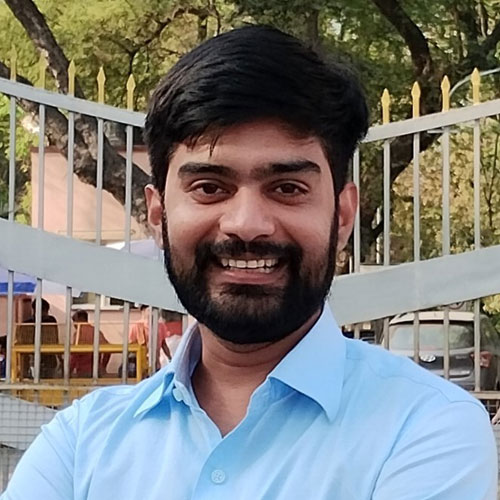
Avinash Ranjan
PhD STUDENTS
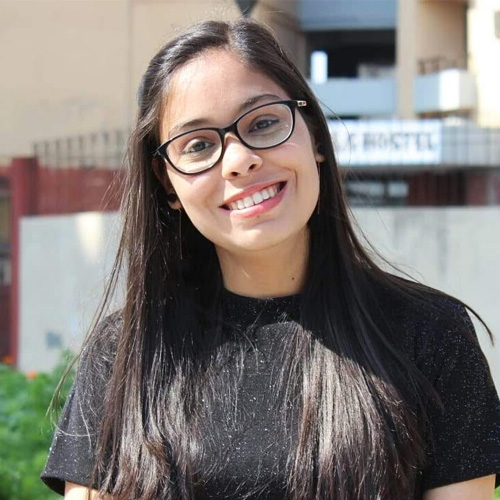
Manisha Drall
 Manisha's academic and professional journey reflects a rich diversity of experiences and a passionate commitment to environmental sustainability. Her educational foundation includes a B.Sc. in Life Sciences from the University of Delhi and an M.Sc. in Natural Resource Management from Guru Gobind Singh Indraprastha University in New Delhi. In addition to her academic qualifications, she holds a Post Graduate Diploma in Environmental Law and Policy from WWF India and National Law University, New Delhi, and has also qualified for the National Eligibility Test (NET) in Environmental Science.
Manisha's academic and professional journey reflects a rich diversity of experiences and a passionate commitment to environmental sustainability. Her educational foundation includes a B.Sc. in Life Sciences from the University of Delhi and an M.Sc. in Natural Resource Management from Guru Gobind Singh Indraprastha University in New Delhi. In addition to her academic qualifications, she holds a Post Graduate Diploma in Environmental Law and Policy from WWF India and National Law University, New Delhi, and has also qualified for the National Eligibility Test (NET) in Environmental Science.She has worked with various esteemed organizations, including the International Union for Conservation of Nature (IUCN) India, CII-ITC Centre of Excellence for Sustainable Development (CESD), SunMoksha Power Private Limited, and the Just Transition Research Centre at IIT Kanpur. These professional experiences have further enriched her expertise in climate and energy policy, adding a crucial layer to her multidisciplinary knowledge base. Manisha's doctoral work is focused on Electric Mobility and Just Transition within the Indian context.
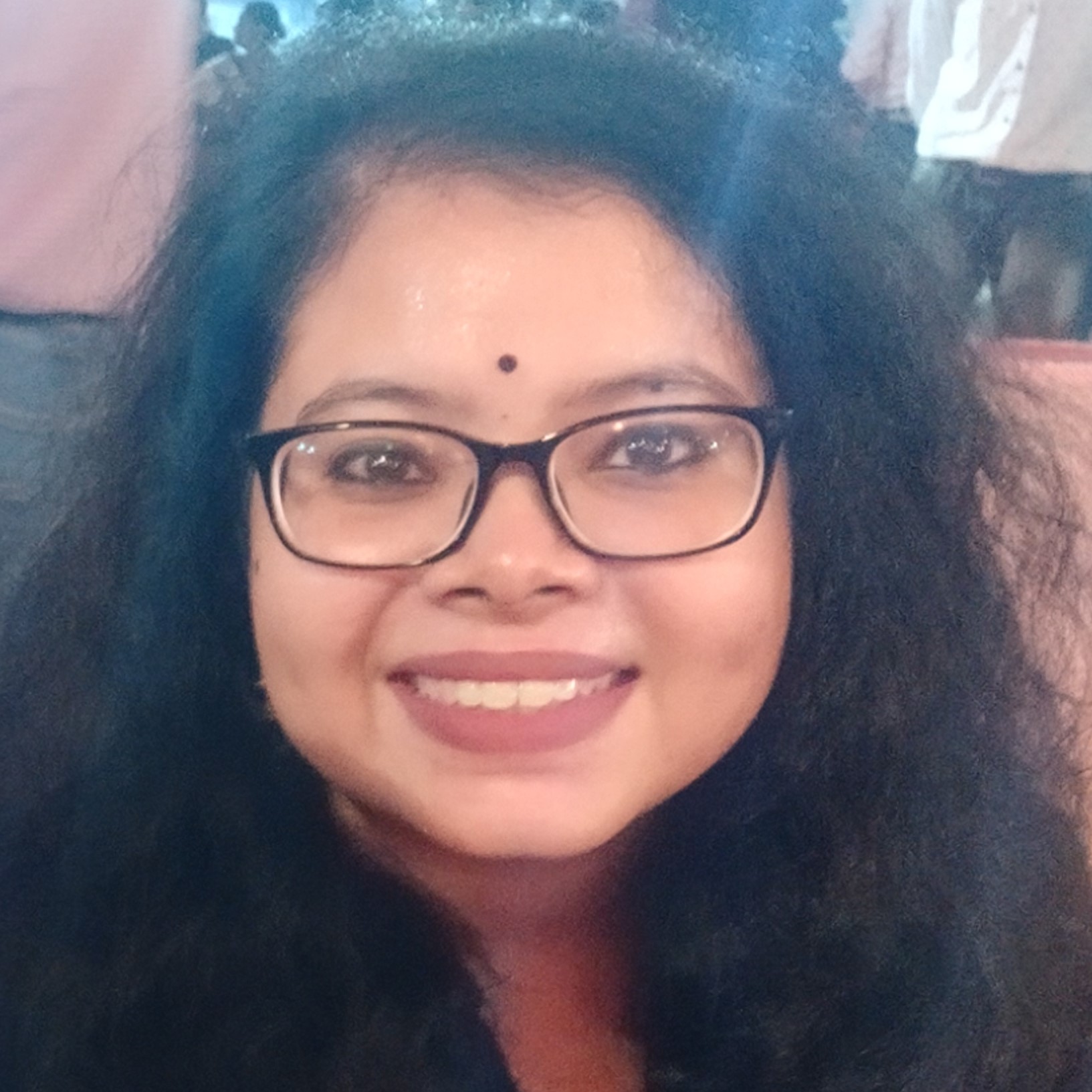
Rajshri Shukla
 Rajshri Shukla is a doctoral candidate in Sociology at the Department of Humanities and Social Sciences, IIT Kanpur. Her broad research interests revolve around Environmental Sociology, Climate Change, Energy Transition, Energy Justice, and Social Stratification. In her thesis, she aims to explore the treatment of the structural inequalities and injustices in the process of energy transition towards renewable energy by conducting a comparative study between India and Australia. She holds a national-level Junior Research Fellowship funded by the University Grants Commission. She obtained her B.A. (Hons.) in Sociology from Hindu College, Delhi University, and M.A. in Sociology from CSJM University. In 2018, she worked as a lecturer at the College of Law, Pranveer Singh Institute of Technology. She presented her work at the 'International Workshop on Socio-ecological relations of the energy transition in Australia, Germany, and India in 2019' and 'European Consortium for Political Research (ECPR) General Conference 2020'.
Rajshri Shukla is a doctoral candidate in Sociology at the Department of Humanities and Social Sciences, IIT Kanpur. Her broad research interests revolve around Environmental Sociology, Climate Change, Energy Transition, Energy Justice, and Social Stratification. In her thesis, she aims to explore the treatment of the structural inequalities and injustices in the process of energy transition towards renewable energy by conducting a comparative study between India and Australia. She holds a national-level Junior Research Fellowship funded by the University Grants Commission. She obtained her B.A. (Hons.) in Sociology from Hindu College, Delhi University, and M.A. in Sociology from CSJM University. In 2018, she worked as a lecturer at the College of Law, Pranveer Singh Institute of Technology. She presented her work at the 'International Workshop on Socio-ecological relations of the energy transition in Australia, Germany, and India in 2019' and 'European Consortium for Political Research (ECPR) General Conference 2020'.
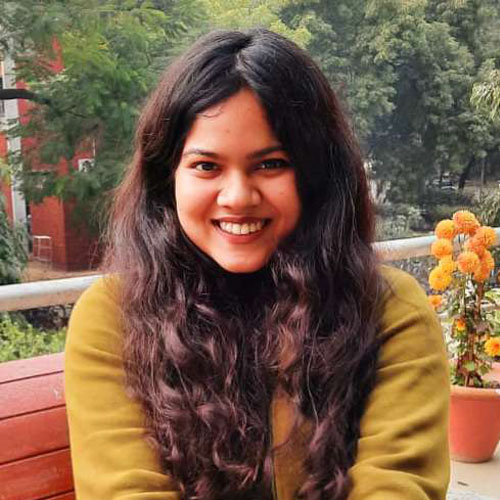
Mayurakshi Acharyya
 Mayurakshi obtained her Bachelor of Arts and Master of Arts degree in Sociology from Jadavpur University, Kolkata. Previously, she worked as a guest lecturer in the Department of Sociology at Shri Shikshayatan College, Kolkata, teaching both Honours and General program students. She cracked the National Eligibility Test on her first attempt and is also a holder of the University Grants Commission Junior Research Fellowship. Currently, she is a second-year PhD student at the Department of Humanities and Social Sciences, IIT Kanpur. Her area of interest lies in Environmental Sociology, Environmental Justice, Energy Transition, social mobility, and migration.
Mayurakshi obtained her Bachelor of Arts and Master of Arts degree in Sociology from Jadavpur University, Kolkata. Previously, she worked as a guest lecturer in the Department of Sociology at Shri Shikshayatan College, Kolkata, teaching both Honours and General program students. She cracked the National Eligibility Test on her first attempt and is also a holder of the University Grants Commission Junior Research Fellowship. Currently, she is a second-year PhD student at the Department of Humanities and Social Sciences, IIT Kanpur. Her area of interest lies in Environmental Sociology, Environmental Justice, Energy Transition, social mobility, and migration.

Pritha Sarkar
 Pritha’s doctoral work focuses on the role of science and the scientific community in India’s energy transition from fossil fuel to renewable energy. She obtained M.A in Sociology from the University of Kalyani, where she conducted a sociological study on the level of awareness about gender role stereotype among married women. Before joining IIT Kanpur, Pritha’s work experience spanned diverse areas, including the banking sector, welfare organisations, and teaching positions in schools and colleges.
Pritha’s doctoral work focuses on the role of science and the scientific community in India’s energy transition from fossil fuel to renewable energy. She obtained M.A in Sociology from the University of Kalyani, where she conducted a sociological study on the level of awareness about gender role stereotype among married women. Before joining IIT Kanpur, Pritha’s work experience spanned diverse areas, including the banking sector, welfare organisations, and teaching positions in schools and colleges.
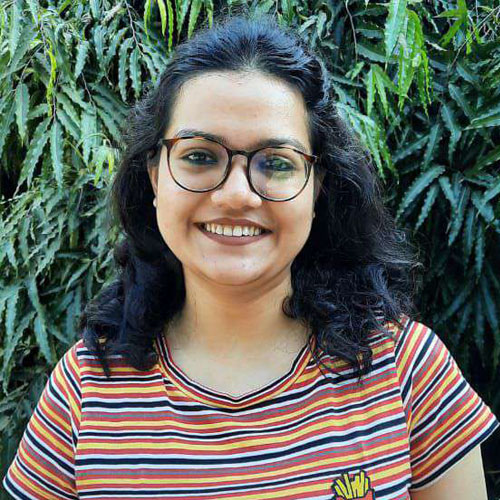
Nandana Bhattacharjee
 Nandana has obtained her bachelor’s degree in sociology from Presidency University, Kolkata and master’s in sociology from South Asian University, New Delhi. She has qualified National Eligibility Test for Assistant Professor in January 2022. During her bachelor’s she has done an internship from Hope Foundation, Calcutta. Currently she is a doctoral candidate in Sociology at Department of Humanities and Social Sciences, IIT Kanpur. Her doctoral work at IIT Kanpur focuses on gender, justice and energy transition.
Nandana has obtained her bachelor’s degree in sociology from Presidency University, Kolkata and master’s in sociology from South Asian University, New Delhi. She has qualified National Eligibility Test for Assistant Professor in January 2022. During her bachelor’s she has done an internship from Hope Foundation, Calcutta. Currently she is a doctoral candidate in Sociology at Department of Humanities and Social Sciences, IIT Kanpur. Her doctoral work at IIT Kanpur focuses on gender, justice and energy transition.

Naorem Nishikanta Mangang
 The growing concerns of climate change in the world motivated Nishi to work on the policy framework of energy transition in India. He is interested in investigating the role of trade unions in coal-based power plants in India. Before joining IIT Kanpur, he completed M.Phil. in Sociology from Jadavpur University and obtained an M.A. in Sociology from Pondicherry University. In 2019, he presented a paper titled “Market-a space for social mobility and identity assertion for the women in Manipur” at the National Seminar on “Regimes of Gender in Contemporary Globalization” organised by the Department of Political science, Presidency University Kolkata. He is currently receiving a Junior Research Fellowship from the University Grants Commission for his doctoral research.
The growing concerns of climate change in the world motivated Nishi to work on the policy framework of energy transition in India. He is interested in investigating the role of trade unions in coal-based power plants in India. Before joining IIT Kanpur, he completed M.Phil. in Sociology from Jadavpur University and obtained an M.A. in Sociology from Pondicherry University. In 2019, he presented a paper titled “Market-a space for social mobility and identity assertion for the women in Manipur” at the National Seminar on “Regimes of Gender in Contemporary Globalization” organised by the Department of Political science, Presidency University Kolkata. He is currently receiving a Junior Research Fellowship from the University Grants Commission for his doctoral research.
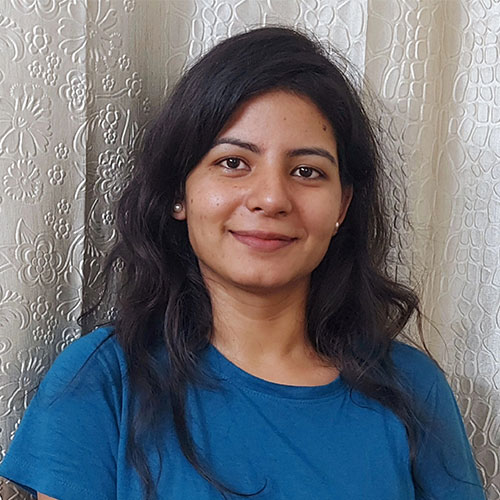
Anjali Yadav
 Anjali Yadav is a 3rd year PhD student at the Indian Institute of Technology Kanpur. She is also a joint degree PhD student at IIT Kanpur- La Trobe University Research Academy. Her broad research interests are Environment, Energy and Climate Change and their intersection with human society. In her PhD thesis, she is studying social norms, pro-environmental behaviors and their implications for common pool resources, such as the Ganga river. She employs mixed-method approach to study the coupling between common pool resources and social norms. Her methodology combines quantitative surveys, spatial analysis and multivariate statistics.
Anjali Yadav is a 3rd year PhD student at the Indian Institute of Technology Kanpur. She is also a joint degree PhD student at IIT Kanpur- La Trobe University Research Academy. Her broad research interests are Environment, Energy and Climate Change and their intersection with human society. In her PhD thesis, she is studying social norms, pro-environmental behaviors and their implications for common pool resources, such as the Ganga river. She employs mixed-method approach to study the coupling between common pool resources and social norms. Her methodology combines quantitative surveys, spatial analysis and multivariate statistics.Anjali was selected at The Summer Institutes in Computational Social Sciences (SICSS-IAS) for two weeks of training program in computational social sciences research. She is the recipient of Junior Research Fellowship, now upgraded to Senior Research Fellowship by the University Grants Commission, India.
She obtained her MSc. in Environmental Studies at University of Delhi. In her master thesis, she used the Water Energy Food (WEF) Nexus framework to analyze climate change adaptation in the face of rapidly melting Himalayan glaciers. Previously, she has interned with ICLEI South Asia and her project on integrated urban water management won the ‘C4Y- IWP Water Champions Youth Fellowship 2019’ award. She cherishes the rich perspectives, pluralistic narratives and reconciliation of disciplines that people from varied backgrounds bring to the CEPRL.
M.Tech. Students

Pradhuman
 Pradhuman is pursuing a M.Tech. in Sustainable Energy Engineering at IIT Kanpur. He is an enthusiastic researcher at the Just Transition Research Center, where he collaborates closely with Professor Pradip Swarnakar. His primary focus of research centers around the crucial topic of "Scaling Floating Solar in India." Beyond his research endeavors, he is actively involved in the IGBC Student Chapter, where his current objective is to secure a prestigious Platinum rating for the SEE departmental building. These experiences reflect his passion for sustainability and commitment to advancing renewable energy solutions in India.
Pradhuman is pursuing a M.Tech. in Sustainable Energy Engineering at IIT Kanpur. He is an enthusiastic researcher at the Just Transition Research Center, where he collaborates closely with Professor Pradip Swarnakar. His primary focus of research centers around the crucial topic of "Scaling Floating Solar in India." Beyond his research endeavors, he is actively involved in the IGBC Student Chapter, where his current objective is to secure a prestigious Platinum rating for the SEE departmental building. These experiences reflect his passion for sustainability and commitment to advancing renewable energy solutions in India.

Snehal
 Snehal is pursuing an M.Tech in Sustainable Energy Engineering at IIT Kanpur. Within the Just Transition Research Center (JTRC), he collaborates closely with Dr. Pradip Swarnakar on the topic of "Off-shore Wind Power Prediction." Outside of this research, Snehal plays a significant role in the IGBC Student Chapter, leading efforts to achieve platinum rating for the department building as per IGBC standards. Equipped with strong analytical abilities, he has hands-on experience in Machine Learning and AI techniques.
Snehal is pursuing an M.Tech in Sustainable Energy Engineering at IIT Kanpur. Within the Just Transition Research Center (JTRC), he collaborates closely with Dr. Pradip Swarnakar on the topic of "Off-shore Wind Power Prediction." Outside of this research, Snehal plays a significant role in the IGBC Student Chapter, leading efforts to achieve platinum rating for the department building as per IGBC standards. Equipped with strong analytical abilities, he has hands-on experience in Machine Learning and AI techniques.
Past Members
Avinash Kumar

Bhavna Joshi
 Tracing her academic journey through multiple fields, including life sciences, biotechnology, forensic science, and anthropology,
Bhavna Joshi is currently working on air pollution in Delhi using a sociological perspective.
Her work engages with three broad themes- knowledge production, risk perception, and energy justice.
It delves to decipher the instruments of construction and assertion of knowledge through discourses and
myriad risk perceiving positions of various actors within the problem’s justice framework.
Bhavna qualified for the National Eligibility Test for Junior Research Fellowship offered by
the University Grants Commission of India in 2015. She completed her MSc. and M.Phil.
degree in Anthropology from the University of Delhi, where she explored the socio-cultural connotations of
‘home’ and ‘homelessness’ through her ethnographic work in urban and rural India. Her paper, co-authored with Prof. Swarnakar,
titled, ‘Staying away, staying alive:
Exploring risk and stigma of COVID-19 in the context of beliefs, actors and hierarchies in India’ has been published in Current Sociology.
Tracing her academic journey through multiple fields, including life sciences, biotechnology, forensic science, and anthropology,
Bhavna Joshi is currently working on air pollution in Delhi using a sociological perspective.
Her work engages with three broad themes- knowledge production, risk perception, and energy justice.
It delves to decipher the instruments of construction and assertion of knowledge through discourses and
myriad risk perceiving positions of various actors within the problem’s justice framework.
Bhavna qualified for the National Eligibility Test for Junior Research Fellowship offered by
the University Grants Commission of India in 2015. She completed her MSc. and M.Phil.
degree in Anthropology from the University of Delhi, where she explored the socio-cultural connotations of
‘home’ and ‘homelessness’ through her ethnographic work in urban and rural India. Her paper, co-authored with Prof. Swarnakar,
titled, ‘Staying away, staying alive:
Exploring risk and stigma of COVID-19 in the context of beliefs, actors and hierarchies in India’ has been published in Current Sociology.

Swagata Das
 Swagata’s interest in environmental sociology drove her to explore the Forest Policy Network in India in her doctoral work. Her doctoral work aims to interrogate the actor negotiation and power governance within the broad contour of the Forest Policy Act 2006 at the domestic level. She holds a MA in Sociology from West Bengal State University and BA in Sociology from Kalyani University. In her MA dissertation, she examined the notion of the "social construction of Queers" in India by employing the theoretical lens of gender.
Swagata’s interest in environmental sociology drove her to explore the Forest Policy Network in India in her doctoral work. Her doctoral work aims to interrogate the actor negotiation and power governance within the broad contour of the Forest Policy Act 2006 at the domestic level. She holds a MA in Sociology from West Bengal State University and BA in Sociology from Kalyani University. In her MA dissertation, she examined the notion of the "social construction of Queers" in India by employing the theoretical lens of gender.
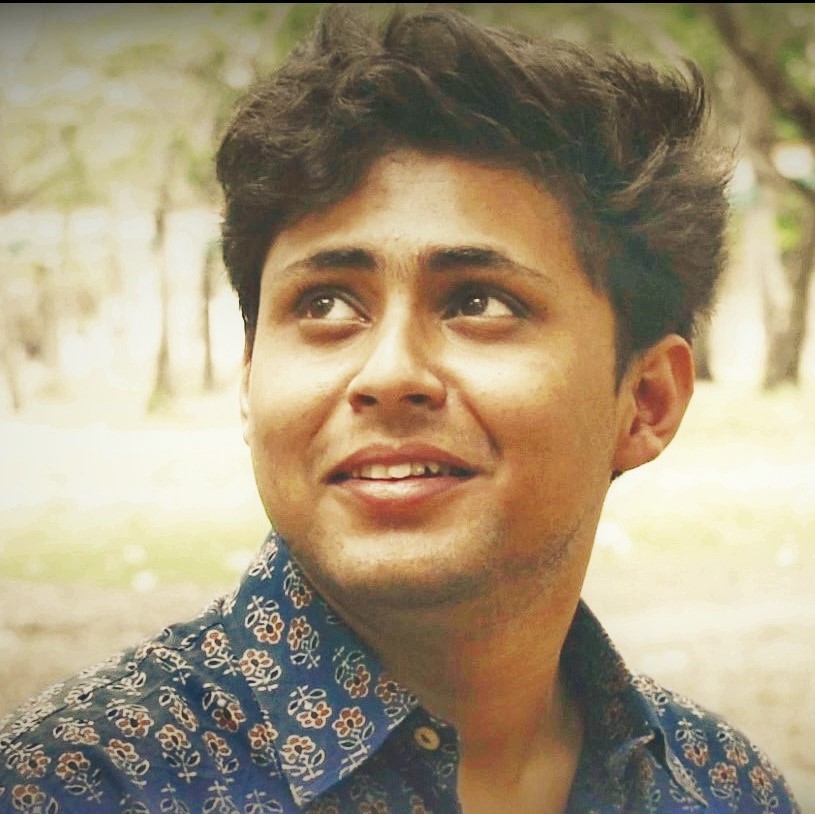
Saikat Howladar
 Saikat is a 3rd-year undergraduate student pursuing a Bachelor in Technology in Material Science & Engineering at IIT Kanpur. He is interested in exploring contemporary research and developments in the field of sociology with collaborative computational techniques of text mining and Natural Language Processing. His other hobbies include photography, scriptwriting and filmmaking.
Saikat is a 3rd-year undergraduate student pursuing a Bachelor in Technology in Material Science & Engineering at IIT Kanpur. He is interested in exploring contemporary research and developments in the field of sociology with collaborative computational techniques of text mining and Natural Language Processing. His other hobbies include photography, scriptwriting and filmmaking.
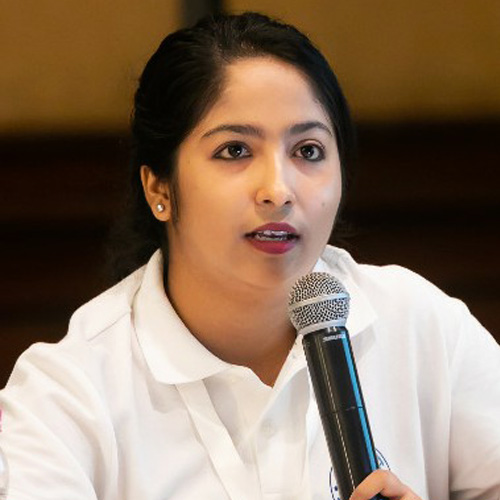
Reeti Chatterjee
 Riti Chatterjee has her PhD degree in department of Agricultural Extension on Social-ecology of Conservation Agriculture at farm level from Bidhan Chandra Krishi Viswavidyalaya (BCKV), West Bengal and worked as Senior Research Fellow under Centre for Advanced Agricultural Science and Technology (CAAST) on Conservation Agriculture project under ICAR-NAHEP-BCKV. She also visited The Ohio State University, Ohio, USA in 2020 as a short-term Visiting Scholar. So far she has attended 19 National and International Conferences, workshops and given oral and poster presentations with 5 best paper awards, and published 18 research papers on various national and international journals. She has already co-authored 7 books and 5 book chapters. She has qualified the National Eligibility Test for Assistant Professor conducted by UGC in her maiden attempt in May, 2017 and also the National Eligibility Test with ARS-Preliminary examination conducted by Agricultural Scientist Recruitment Board (ASRB) in May, 2018. Riti obtained her M.Sc. in Agricultural Sciences as the First Class First with OGPA 9.15, being the Gold-medallist. She has been awarded the best master’s thesis award jointly by BHU and RASSA.
Riti Chatterjee has her PhD degree in department of Agricultural Extension on Social-ecology of Conservation Agriculture at farm level from Bidhan Chandra Krishi Viswavidyalaya (BCKV), West Bengal and worked as Senior Research Fellow under Centre for Advanced Agricultural Science and Technology (CAAST) on Conservation Agriculture project under ICAR-NAHEP-BCKV. She also visited The Ohio State University, Ohio, USA in 2020 as a short-term Visiting Scholar. So far she has attended 19 National and International Conferences, workshops and given oral and poster presentations with 5 best paper awards, and published 18 research papers on various national and international journals. She has already co-authored 7 books and 5 book chapters. She has qualified the National Eligibility Test for Assistant Professor conducted by UGC in her maiden attempt in May, 2017 and also the National Eligibility Test with ARS-Preliminary examination conducted by Agricultural Scientist Recruitment Board (ASRB) in May, 2018. Riti obtained her M.Sc. in Agricultural Sciences as the First Class First with OGPA 9.15, being the Gold-medallist. She has been awarded the best master’s thesis award jointly by BHU and RASSA.

Mudit Kumar Singh
 Mudit Kumar Singh completed his MBA from the University of Allahabad and PhD from Motilal Nehru National Institute of Technology, Allahabad. He is a 2017-18 batch Fulbright alumnus and currently affiliated with the Indian Institute of Technology Kanpur as Postdoctoral Fellow. He is also affiliated with Duke University as Visiting Research Fellow. He has been doing research, advocacy, and teaching for the past twelve years in India. His recent studies apply a mix-method approach to explore linkages between social capital, social networks, and public participation in the context of small groups, local governance, and public policy. He has published in the International Journal of Sociology and Social Policy and Women’s Studies International Forum and has written multiple project and policy reports.
Mudit Kumar Singh completed his MBA from the University of Allahabad and PhD from Motilal Nehru National Institute of Technology, Allahabad. He is a 2017-18 batch Fulbright alumnus and currently affiliated with the Indian Institute of Technology Kanpur as Postdoctoral Fellow. He is also affiliated with Duke University as Visiting Research Fellow. He has been doing research, advocacy, and teaching for the past twelve years in India. His recent studies apply a mix-method approach to explore linkages between social capital, social networks, and public participation in the context of small groups, local governance, and public policy. He has published in the International Journal of Sociology and Social Policy and Women’s Studies International Forum and has written multiple project and policy reports.

Barsha Nibedita
 Barsha has her PhD from the Department of Management Studies and Industrial Engineering, Indian Institute of Technology (Indian School of Mines) Dhanbad. Her research area of interest includes Energy Economics, Econometrics, Energy Transitions, Energy Finance, and Sustainable Development. She has completed her Masters in Applied Economics from Pondicherry Central University, India and M.Phil. in Developmental Economics from Ravenshaw University, India. She has participated in various research methodology workshops as well as conferences. Additionally, she has already published research papers related to the Energy Economics area in reputed research journals. Her thesis mainly focuses on evaluating the potential of energy diversity strategy to mitigate carbon emissions.
Barsha has her PhD from the Department of Management Studies and Industrial Engineering, Indian Institute of Technology (Indian School of Mines) Dhanbad. Her research area of interest includes Energy Economics, Econometrics, Energy Transitions, Energy Finance, and Sustainable Development. She has completed her Masters in Applied Economics from Pondicherry Central University, India and M.Phil. in Developmental Economics from Ravenshaw University, India. She has participated in various research methodology workshops as well as conferences. Additionally, she has already published research papers related to the Energy Economics area in reputed research journals. Her thesis mainly focuses on evaluating the potential of energy diversity strategy to mitigate carbon emissions.

Rahul Maurya
 After completing his bachelor's degree in mechanical engineering from Mumbai university, Rahul decided to pursue a master's degree in technology from the Sustainable Energy Engineering department at IIT Kanpur. He was inspired to do so by the ever-increasing pace of technological development and the growing emphasis on renewable energy sources. He is currently working under guidance of Prof. Pradip Swarnakar on the topic of “Solar-Wind hybrid plant compatibility in India”. He had also worked as intern in electricity and fuel division at ‘The Energy and Research Institute’ where he worked on development of machine learning model for predicting load demand.
After completing his bachelor's degree in mechanical engineering from Mumbai university, Rahul decided to pursue a master's degree in technology from the Sustainable Energy Engineering department at IIT Kanpur. He was inspired to do so by the ever-increasing pace of technological development and the growing emphasis on renewable energy sources. He is currently working under guidance of Prof. Pradip Swarnakar on the topic of “Solar-Wind hybrid plant compatibility in India”. He had also worked as intern in electricity and fuel division at ‘The Energy and Research Institute’ where he worked on development of machine learning model for predicting load demand.
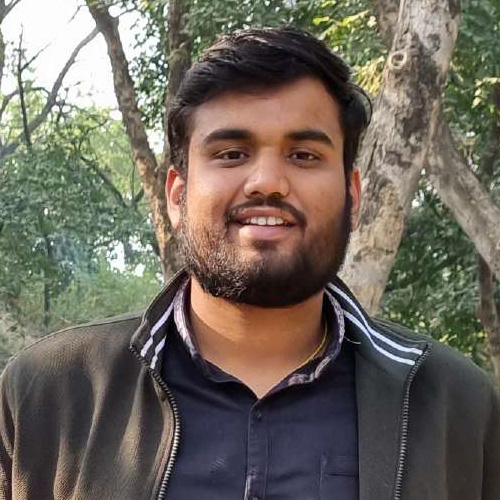
Prakhar Choudhary
 Prakhar is currently pursuing his M.Tech. in Sustainable Energy Engineering from the Indian Institute of Technology Kanpur, prior to this he completed his B.Tech. in Mechanical Engineering from Dumka Engineering College, Dumka. At IIT Kanpur, he has been awarded ‘Academic Excellence Award’ for his outstanding performance during the academic year 2021-2022. His master's thesis is focused on the development of Uttar Pradesh's power sector on the pathways of Gujarat. This involves projecting electricity demand and supply for both the states and developing norms to reduce GHG emissions and power outages.
Prakhar is currently pursuing his M.Tech. in Sustainable Energy Engineering from the Indian Institute of Technology Kanpur, prior to this he completed his B.Tech. in Mechanical Engineering from Dumka Engineering College, Dumka. At IIT Kanpur, he has been awarded ‘Academic Excellence Award’ for his outstanding performance during the academic year 2021-2022. His master's thesis is focused on the development of Uttar Pradesh's power sector on the pathways of Gujarat. This involves projecting electricity demand and supply for both the states and developing norms to reduce GHG emissions and power outages.In terms of professional experience, he worked as a Research Intern at the Centre for Social and Economic Progress (CSEP), Delhi where he conducted a critical analysis of DisComs' power procurement strategies and analyzed the data for long and short-term power procurement across various parameters like fuel source, ownership, costs, availability. His interest lies in data analysis particularly focused on Power Sector of India.
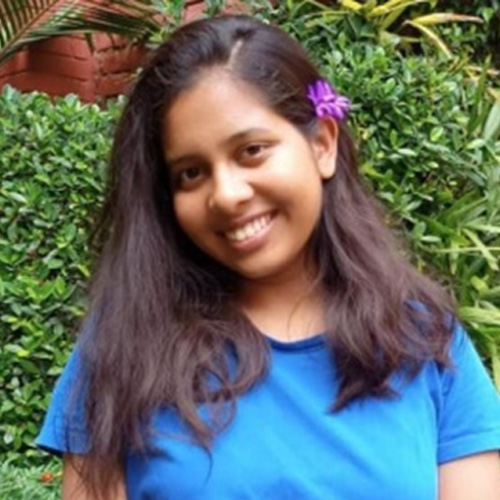
Pragya Saini
 Pragya Saini completed her under graduation from Gargi College, Delhi University with a Bachelor of Political Science and Economics. She has participated in various case study competitions and earned recognition from the Ambassador of Chile for her work in renewable energy start-ups, environment & sustainability. Committed to social causes, Pragya actively supports NGOs like the Spirit of Youth Foundation and the Amitasha Project. As a past research intern at the Indian Institute of Science, Bangalore, she reviewed numerous journal articles and Papers in the area of IP & Sustainability and also learned the role of data analysis in evidence-based Policy research, implementation, and evaluation using tools like SPSS. Pragya's optimism and hard work drive her passion to contribute for just transition, energy, climate change policy, and sustainable development.
Pragya Saini completed her under graduation from Gargi College, Delhi University with a Bachelor of Political Science and Economics. She has participated in various case study competitions and earned recognition from the Ambassador of Chile for her work in renewable energy start-ups, environment & sustainability. Committed to social causes, Pragya actively supports NGOs like the Spirit of Youth Foundation and the Amitasha Project. As a past research intern at the Indian Institute of Science, Bangalore, she reviewed numerous journal articles and Papers in the area of IP & Sustainability and also learned the role of data analysis in evidence-based Policy research, implementation, and evaluation using tools like SPSS. Pragya's optimism and hard work drive her passion to contribute for just transition, energy, climate change policy, and sustainable development.

Kushal Singh
 Kushal has a Master's Degree in Ecology, Environment, and Sustainable Development from the Tata Institute of Social Sciences. He also completed his Bachelor's Degree in Social Sciences from the same institute. Kushal has worked as a Vidhushi Fellow with Drishtee Foundation, focusing on community development, sustainable livelihoods, and micro-enterprise development. He has also interned at Snehalaya (Centre for Child Rights), Ashadeep (A Mental Health Society), and Aaranyak. For his master's thesis, Kushal conducted an Impact Assessment of Alternative Livelihoods: Piggery Intervention at Bhuyapara, Manas National Park. Kushal's research interests include climate change mitigation and adaptation, energy transition, waste management, and sustainable livelihoods. With an interdisciplinary background, Kushal is keen to utilize his passion for environmental stewardship as an intern at JTRC.
Kushal has a Master's Degree in Ecology, Environment, and Sustainable Development from the Tata Institute of Social Sciences. He also completed his Bachelor's Degree in Social Sciences from the same institute. Kushal has worked as a Vidhushi Fellow with Drishtee Foundation, focusing on community development, sustainable livelihoods, and micro-enterprise development. He has also interned at Snehalaya (Centre for Child Rights), Ashadeep (A Mental Health Society), and Aaranyak. For his master's thesis, Kushal conducted an Impact Assessment of Alternative Livelihoods: Piggery Intervention at Bhuyapara, Manas National Park. Kushal's research interests include climate change mitigation and adaptation, energy transition, waste management, and sustainable livelihoods. With an interdisciplinary background, Kushal is keen to utilize his passion for environmental stewardship as an intern at JTRC.
Gallery








